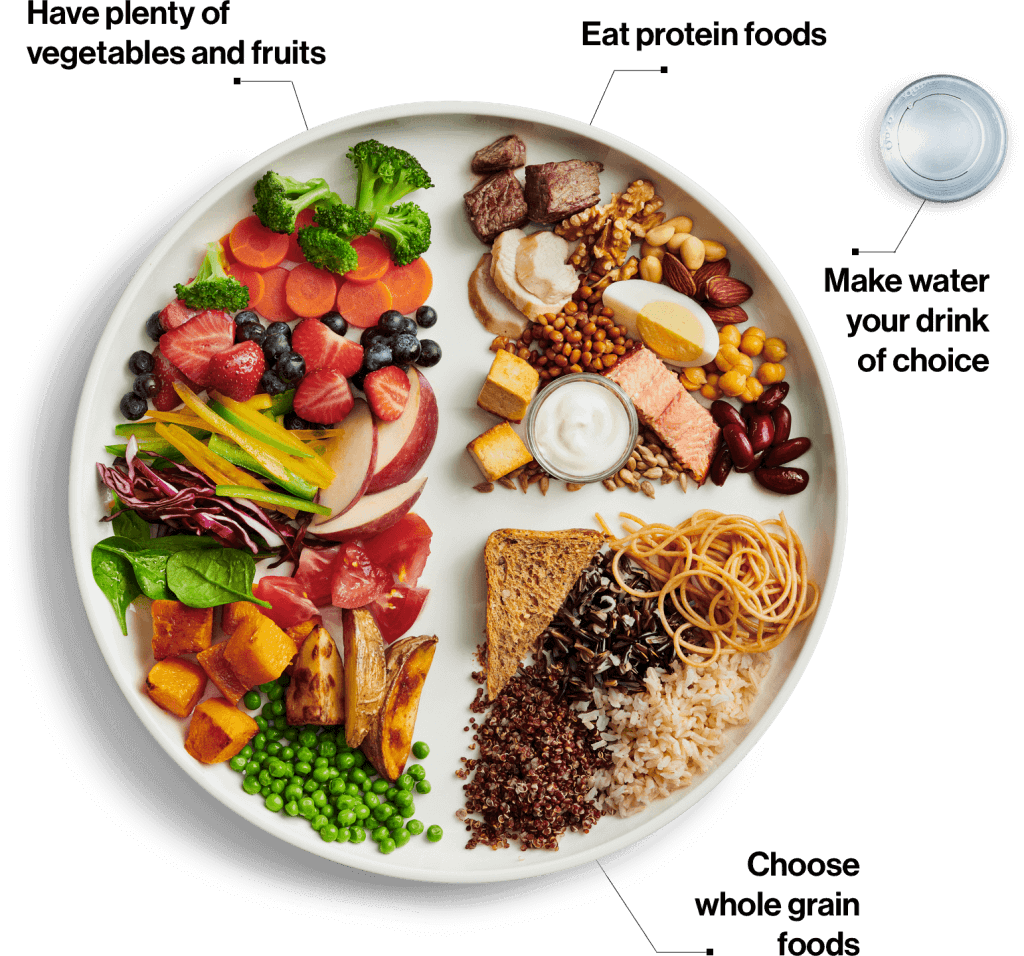“Heathy eating is more than the foods you eat.” Eating Well with Canada’s Food Guide 2019
The Canadian government recently unveiled its latest rendition of dietary guidelines that, for the first time in decades, presents a more holistic snapshot of what constitutes healthy eating. Eat Well, Live Well is the basic tenet of the 2019 food guide – a principle that has been more positively received across the diverse landscape of Canadian healthcare practitioners. While not fully embraced by all, most folks in the field are relieved to see some helpful and encouraging advice being dispersed.
A Food Guide history lesson
Did you know the Canadian government released its first dietary guideline in 1942?
Dubbed ‘Canada’s Official Food Rules,’ this early set of recommendations was created around wartime food rationing and concern for preventing nutritional deficiencies. Food rules were incorporated into school curriculum and lesson plans were circulated to teachers. Of interest, vitamin D was highlighted as essential for children and advisable for adults – and fish oil supplementation was advocated. What a pioneering concept!
Fast forward through the years, and we see a total of 8 food guides leading to today, with the consistent underlying message of “guiding food selection to promote the nutritional health of Canadians.”

4 key features of the 2019 guide
The new food guide – the first rewrite since 2007, with 5 years in the making – is a radical and historic shift away from its long-standing emphasis on meat, dairy and eggs to a more plant- and planet-friendly diet. It’s visually appealing, showcasing colourful food on a plate that is half-covered with fruits and vegetables. The remaining half-plate is shared by proteins (including plant options like legumes, tofu, nuts and seeds) and whole grains (like wild rice and quinoa).
Notably, the 2019 Canada’s Food Guide urges Canadians to:
- Eat more plants
- Make water your beverage of choice
- Avoid highly-processed foods
- Cook and eat more at home
What has changed?
For decades, Canadian dietary guidelines have been built around 4 main food groups: meat, dairy, grains, and fruit/vegetables. A significant change – some are calling it radical – has been the dismissal of milk and most milk products from the roster of healthy food choices. The plate image only shows a small container of yoghurt, for example. The traditional glass of cow’s milk is gone and instead, milk alternatives like almond and soy are suggested. Even more importantly, water is flagged as the number-one choice for hydration!
Other noteworthy changes include:
- No serving sizes/numbers (instead of ‘portions,’ there are now visual ‘proportions’)
- Juice is no longer considered a source of fruit
- Special emphasis on risks associated with alcohol
- Smaller amounts of whole grains (including bread)
- ‘Healthy’ recipes added
- Cooking and eating at home encouraged
Gentle lifestyle nudges
Canada’s Food Guide 2019 is lightly mindfulness-oriented, and advocates shifts in lifestyle to improve overall health. The Guide goes beyond the food that you eat – in other words, it’s not only about food choices. The underlying message is to be more mindful about what, when and how you eat.
Lifestyle shifts such as cooking at home more often, eating with others, taking time to eat, and paying attention to body cues (like hunger and satiety) are supported. The Guide cautions us to be wary of food marketing ploys and encourages us to better understand and use food labels when shopping.
A step in the right direction?
Canada’s Food Guide 2019 appears to be headed in a more positive direction with its updated, modern mix of dietary and lifestyle advice. While there is, without doubt, room for growth and improvement, this more holistic and inclusive (do we see a perceptible nod to vegetarians and vegans?) guide is a far-cry from traditional versions. And a step in the right direction is always a good thing!
What do you think?
Have a peek at Canada’s Food Guide 2019 here.
Julia Denker has a passion for wellness, educational background in psychology and nutrition, and administrative leadership experience. She knows that we can all live and work smarter by making small but impactful lifestyle changes, including rethinking our food choices. Understanding bio-chemical individuality is key, and she guides clients on cueing into their bodies to craft a nourishment plan that works.

